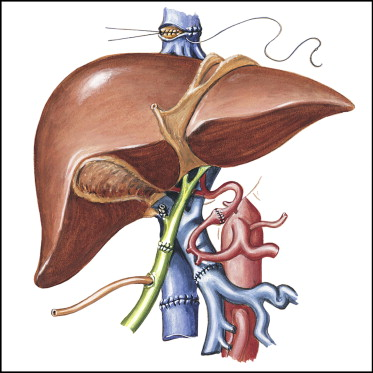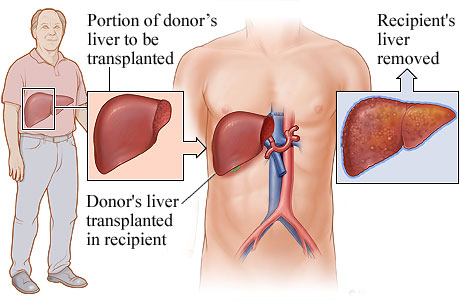Liver Transplantation
A liver transplant is a surgical procedure that removes a deceased liver that no longer functions properly (liver failure) and replaces it with a healthy liver from a deceased donor or a portion of a healthy liver from a living donor.
Your liver is your largest internal organ and performs several critical functions, including: Processing nutrients, medications and hormones
- Producing bile, which helps the body absorb fats, cholesterol and fat-soluble vitamins
- Making proteins that help the blood clot
- Removing bacteria and toxins from the blood
- Preventing infection and regulating immune responses
Liver transplant is usually reserved as a treatment option for people who have significant complications due to end-stage chronic liver disease. Liver transplant may also be a treatment option in rare cases of sudden failure of a previously healthy liver (Acute liver failure) or to treat certain liver cancers.
The number of people waiting for a liver transplant greatly exceeds the number of available deceased-donor livers.
Living-donor liver transplant is an alternative to waiting for a deceased-donor liver to become available. Living-donor liver transplant is possible because the human liver regenerates and returns to its normal size shortly after surgical removal of part of the organ.
Major causes of cirrhosis leading to liver failure and liver transplant include:
- Hepatitis B and C.
- Alcoholic liver disease, which causes damage to the liver due to excessive alcohol consumption.
- Nonalcoholic fatty liver disease, a condition in which fat builds up in the liver, causing inflammation or liver cell damage.
- Genetic diseases affecting the liver, including hemochromatosis, which causes excessive iron buildup in the liver, and Wilson’s disease, which causes excessive copper buildup in the liver.
- Diseases that affect the bile ducts (the tubes that carry bile away from the liver), such as primary biliary cirrhosis, primary sclerosing cholangitis and biliary atresia. Biliary atresia is the most common reason for liver transplant among children.
During the procedure
Deceased-donor liver transplant
If you’re notified that a liver from a deceased donor is available, you’ll be asked to come to the hospital immediately. Your health care team will admit you to the hospital, and you’ll undergo an exam to make sure you’re healthy enough for the surgery.
Liver transplant surgery is done using general anesthesia, so you’ll be sedated during the procedure.
The transplant surgeon makes a long incision across your abdomen to access your liver. The location and size of your incision varies according to your surgeon’s approach and your own anatomy.
The surgeon removes the diseased liver and places the donor liver in your body. Then the surgeon connects your blood vessels and bile ducts to the donor liver. Surgery can take up to 12 hours, depending on your situation.
Once your new liver is in place, the surgeon uses stitches and staples to close the surgical incision. You’re then taken to the intensive care unit to begin recovery.
After the procedure
After a liver transplant
After your liver transplant, you can expect to:
- Possibly stay in the intensive care unit for a few days. Doctors and nurses will monitor your condition to watch for signs of complications. They’ll also test your liver function frequently for signs that your new liver is working.
- Spend 5 to 10 days in the hospital. Once you’re stable, you’re taken to a transplant recovery area to continue recuperating.
- Have frequent checkups as you continue recovering at home. Your transplant team designs a checkup schedule for you. You may undergo blood tests a few times each week at first and then less often over time.
- Take medications for the rest of your life. You’ll take a number of medications after your liver transplant, many for the rest of your life. Drugs called immunosuppressants help keep your immune system from attacking your new liver. Other drugs help reduce the risk of other complications after your transplant.
Getting in Touch is easy
Fill out our enquiry form, we will get back you shortly.


